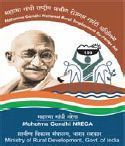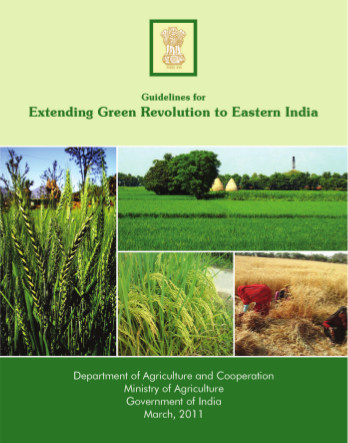/topics/government-programmes
Government Programmes
Monitoring systems for incentive programmes - Learning from large scale rural sanitation initiatives in India
Posted on 14 Jun, 2011 03:45 PMSolid waste management initiatives in small towns - Lessons and implications - A WSP report
Posted on 10 Jun, 2011 05:12 PM These efforts were developed and launched through urban local bodies and which transformed service levels and helped improve compliance with the Municipal Solid Waste Rules, in a context where the state of MSW services in most of the Indian towns has been far from sati
Report of the workshop on High resolution cartosat satellite data
Posted on 04 Jun, 2011 01:01 PMIntroduction
Irrigation development is essential to ensure water and food security on a sustainable basis. Large scale development of irrigation infrastructure is the key to achieve these objectives. Accelerated Irrigation Benefit Program (AIBP) was launched by Government of India during 1996-97 to provide financial assistance to State Governments with the aim of speeding up the implementation of on-going irrigation / multi-purpose water resources projects. Monitoring of the projects covered under the AIBP is periodically done by the Central Water Commission / Ministry of Water Resources with the help of its regional offices situated all over the country. In the absence of real time maps during construction, the conventional monitoring is done through discussions with field authorities and random field checks. The monitoring reports with non-spatial information generally lack in the synoptic view of the critical gaps and the quantitative progress achieved in irrigation potential creation.
The availability of data from Cartosat - 1 and Cartosat - 2 high resolution satellites has enhanced the scope of infrastructure mapping and monitoring. This data has immense potential for assessment of progress of Irrigation works and closer visualization of spatial irrigation network.
Upward revision of incentive amount for construction of individual household latrine under Total Sanitation Campaign - PIB Release
Posted on 04 Jun, 2011 11:11 AMThe incentive for one unit of Individual Household Latrine (IHHL) has been raised from existing Rs. 2,200 (Rs. 2,700 for difficult and hilly areas) to Rs. 3,200 (Rs. 3,700 for difficult and hilly areas). The central share out of this shall be Rs. 2,200 (Rs. 2,700 in case of hilly and difficult areas) and State Government share shall be Rs. 1,000. Minimum beneficiary share shall be Rs. 300. State Governments are allowed the flexibility to provide higher incentive for a household toilet, of the same or higher unit costs from their own funds.
The consultative committee of the Ministry of Water Resources discusses the role and functions of Central Water Commission - PIB Release
Posted on 30 May, 2011 03:25 PMThe Consultative Committee of the Ministry of Water Resources met recently under the Chairmanship of Shri Salman Khurshid, Minister of Water Resources. Minister of State for Water Resources, Shri Vincent H. Pala was also present along with the secretary and other senior officers of the Ministry.
"NREGA implementation in State not satisfactory": MGNREGS News updates compiled by FES (16 - 30 April 2011)
Posted on 27 May, 2011 12:11 PM
Main highlights in this update:
- NREGA implementation in State not satisfactory: The report card on implementation of Mahatma Gandhi National Rural Guarantee Act (MGNREGA) is a mix bag for Assam, with at least 62 per cent households being provided employment under the flagship schemes, while ombudsman has not been constituted for any district and State fund.
Guidelines for extending green revolution to eastern India - Document prepared by Department for Agriculture and Cooperation (2011)
Posted on 27 May, 2011 07:50 AM The states of Assam, Bihar, eastern U.P, Chattisgarh, Jharkhand, Bengal, Orissa were allocated extra funds in the last year for this purpose.
The states of Assam, Bihar, eastern U.P, Chattisgarh, Jharkhand, Bengal, Orissa were allocated extra funds in the last year for this purpose.
Guidelines for rainfed area development programme - Document prepared by Department of Agriculture and Cooperation (2011)
Posted on 27 May, 2011 07:47 AMRainfed areas account for nearly 57 per cent of the agricultural land in India. These areas assume special significance in terms of ecology, agricultural productivity and livelihoods for millions. With proper management, rainfed areas have the potential of contributing a larger share to food grain production.
Guidelines for integrated development of 60,000 pulses villages in rainfed areas - Document prepared by Department of Agriculture and Cooperation (2011)
Posted on 27 May, 2011 07:36 AMThe budget allocates Rs 300 crores under the Rashtriya Krishi Vikas Yojana (RKVY) for this scheme. This project will supplement the ongoing work on pulses development under the National Food Security Mission. There is also an emphasis on building institutions that would provide market linkage to the grower of pulses. The states of M.P, U.P, Karnataka, Andhra Pradesh, Gujarat, Chattisgarh, Bihar, Maharashtra, Orissa, Rajasthan, and Tamilnadu were chosen for this programme. These states together constitute nearly 96% of area where pulses are grown.
Inclusion of a component relating to rural drinking water in the special package for drought mitigation strategies in Bundelkhand region of Uttar Pradesh and Madhya Pradesh - PIB release
Posted on 22 May, 2011 05:09 PMThis would be in addition to the other measures approved by the Cabinet on 19th November, 2009 under the special package for implementing drought mitigation strategies in Bundelkhand.





